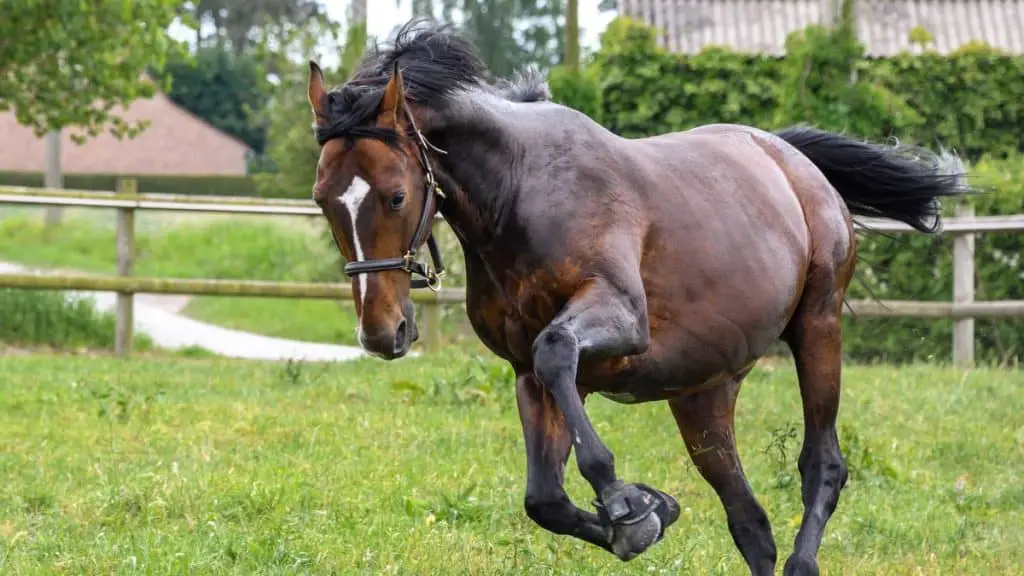Skip To Section
A novice who is not used to being around horses can get quite mixed up with all the different sounds that a horse makes.
Horses are, by and large, sober animals. Quiet and composed, unless troubled or wild, they can be tamed and will adhere to commands consistently and loyally.
Running Horses
Since we were young, we’ve been taught that, just as a dog barks, a horse neighs. We’ve heard horses neighing on the large screen in movies. The portrayal of this is especially pronounced when the horse is shown up in the air on its hind legs. It’s also evident in scenes that portray the horse (with or without a rider) running fast.

This looks so dramatic on screen, and we are amazed at the horse’s power. Nonetheless, what you’re witnessing on-screen couldn’t be further from the truth. In fact, horses do not neigh while they run at all.
Flawed Portrayal
In television or in films, horse sounds like neighing typically occurs in chase scenes. The protagonist is likely being followed by a villain.
If you didn’t know, this is just for effect and to make the scene look more elaborate. People who know horses flinch at scenes like this because they are, well, just so wrong.
The Anatomy Of Horses
You need to have some knowledge about the breathing mechanism of a horse before you jump to conclusions about the sounds they make. Horses are not able to breathe through their mouths. When they run, horses have to do whatever they possibly can to increase the flow of air into their lungs.
To do this, horses will extend their heads and necks and position themselves in such a way as to open their throats. The voice box will be automatically opened in this way too. This positioning effort forces the horse’s voice box to be pulled to one side.
If you hear running horses neigh, this would be nothing short of a miracle. The simple fact of a horse’s biology means that horses cannot neigh while they are running.
Other Noises
If you do get the opportunity to witness a running horse, or if you are a horse rider, you may hear other sounds emanating from the horse.
When horses experience a sharp intake of breadth, a whistle or a roar may be heard. This is made by the nerves in the voice box. It may cause injury to the controlling nerves of the horse’s voice box if it happens too often.
This, for some strange reason, occurs more on the left side than on the right. Surgery is often done on show horses to keep the paralyzed side in an open position permanently. This affects many horse sounds, but it makes running easier on the horse, as breathing is facilitated.
The Common Neigh
One thing we do know, as horse enthusiasts will confirm, horses neigh in response to particular situations and the feelings they produce. Commonly, if you hear horses neighing, it will be because horses are feeling anxious or confident. Though these are opposite feelings in the spectrum of emotions, animal experts will know exactly what’s causing the sounds by matching them with the horse’s behavior and gestures.

